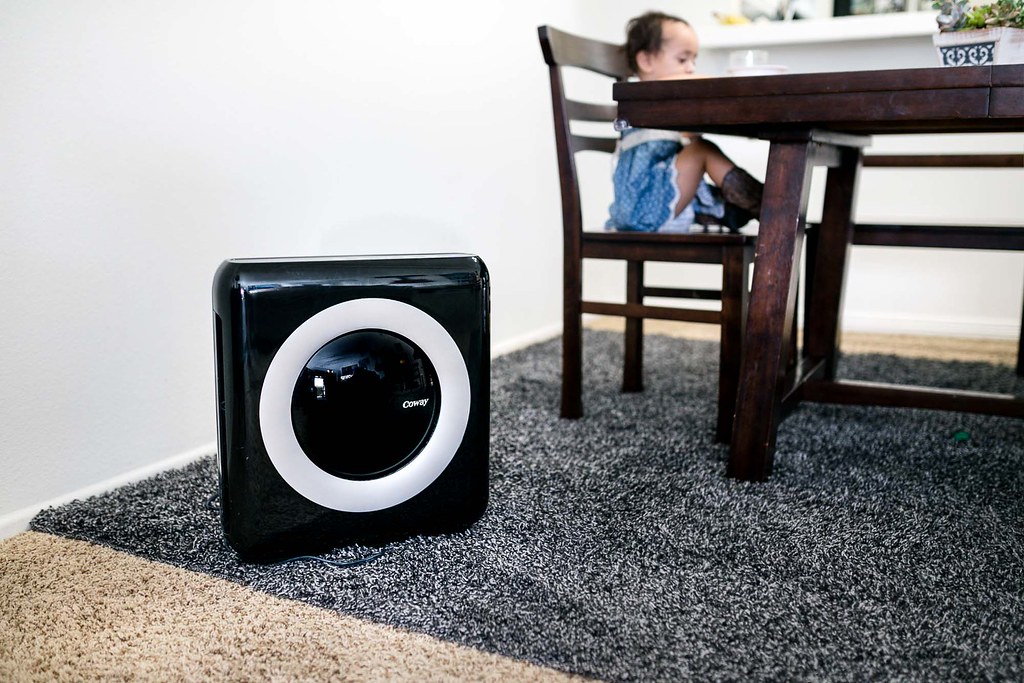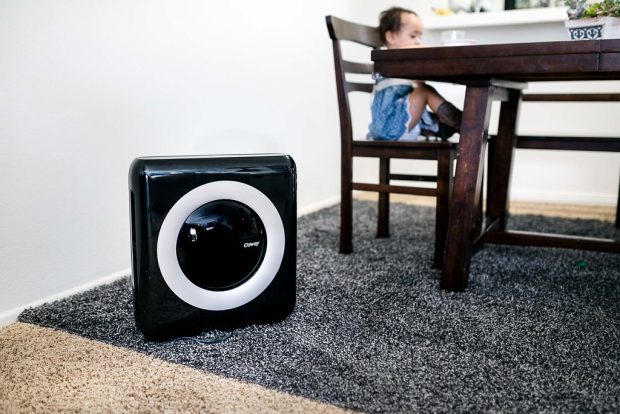
Builders lure homeseekers with built-in air purifiers amid fine dust woes
Various and viable tools are available for citizens here to respond to the ever-growing air pollution, and newlyweds Park Young-eun and Yeo Ryong-koo are also on the lookout for solutions to keep their home safe from fine dust. Recently, the couple who are considering buying a new apartment in Incheon, just west of Seoul, is enthralled by a whole-house air purification system, which they have been searching for months amid growing health concerns over fine dust that often blankets the country. “An air purifier was the first home appliance we bought after getting married,” Park said. “I’ve always thought it will be good to live in an apartment equipped with built-in air purifiers because it makes you feel safe from fine dust.” With fine dust air pollution becoming one of the country’s biggest concerns, South Korean construction companies are now attracting air pollution-conscious home seekers with apartments equipped with built-in air purifiers and whole-house air cleaning systems.
Major apartment builders already have been rolling out their own solutions to tackle fine dust problems. While planting dust-absorbing trees and installing mist spraying facilities at apartment complexes are a few of their outdoor efforts, builders are increasingly bringing in advanced technologies for indoor air-quality management to meet demand. Hyundai Engineering & Construction Co., the country’s top builder by sales, is planning the installation of air shower booths at entrances of its new apartments to be built in the posh Gangnam district in Seoul that can be commonly found in clean rooms for electronic facilities. The builder has also designed H-Entrance, a small area next to the front door equipped with a portable dust collector and a clothes refresher, with an air purifier also installed in the ceiling. “Young couple with babies, those who have pets and the elderly are showing lots of interests in our air purification system,” said Hong Eun-seo, who works at a Hyundai E&C apartment show house. “We tell people to forget about their portable air purifiers if they are going to live here.”
Daewoo Engineering & Construction Co., another major builder here, has put out a system that manages air quality at underground parking lots. Its new apartments will also have elevators armed with ultraviolet light for sterilization, according to Daewoo E&C. SK Engineering & Construction Co. is also designing apartments that have windows equipped with fine dust filters. In fact, the construction industry started to closely watch the fine dust issue a couple of years ago, realizing that in-door air quality is vital for people’s lives, according to Kim Woo-joo, a researcher at Samsung Construction & Trading Corp. “While portable air cleaners have become a must-have item for consumers, they can only cover limited spaces in which they are placed. Builders thought about how they can maintain good air quality in the entire building,” she said.
New air purification systems presented by local builders are also internet-of-things (IOT) based, allowing people to check air conditions and control functions with their mobile gadgets, which Moon Hyeun-jun, an architectural engineering professor at Dankook University in Seoul, says is part of construction companies’ efforts to make smart homes, and this automatically controlled air purification system will further expand to other residences. The cutting-edge air purification systems sought after by builders are also a source of interest for home appliance makers who have been enjoying brisk sales of portable air purifiers in recent years. “I can’t say (built-in air purifying systems) are good or bad for our industry at this point,” said Park Hyung-ho, a senior researcher studying indoor environment quality (IEQ) at LG Electronics Inc. “But it’s something that we need to watch closely. Let’s see how it turns out.”
Currently, built-in air purifiers installed at new apartments are not made by home appliance makers, such as LG Electronics Inc. Instead, they are usually collaborative works between builders and local ventilation equipment makers. Ventilators are designed to facilitate the replacement of stale inside air with fresh outside air, but they are insufficient when cleaning ultra-fine dust. To solve that problem, ventilators combined with air purifying tools, such as high-efficiency particulate absorber (HEPA) filters, are on the market. “Installing stand-alone air purifiers in each room is just excessive,” said Lee Yun-gyu, a senior researcher at the Korea Institute of Civil Engineering and Building Technology. “There’s no doubt that air purifiers combined with air ventilator units will be more efficient.”
But some experts question whether built-in air purifiers with air ventilation systems have reliable fine dust-removing capacities like portable air purifiers. “Air ventilation equipment with filters doesn’t mean it’s an air purifier,” said Noh Kwang-chul, a member of the International Electrotechnical Commission (IEC) working group that studies the performance of air treatment electrical appliances. “Besides, there are no international standards for these new air purification systems. They need verification.” Although there are no comparable data, builders claim their air purification systems are proven, with some emphasizing that their products have received the same certification from the Korea Air Cleaning Association given to portable air purifiers. “There’s a reason why we applied for patents,” said Choi Hye-jung, a manager at Xi Service & Development, a subsidiary of GS Engineering & Construction Co., which claims to have developed South Korea’s first built-in air purifying and ventilating system. “It’s a one-of-a-kind product. We hope we can apply our products to other buildings and houses.”
By Joo Kyung-don
(Yonhap)



